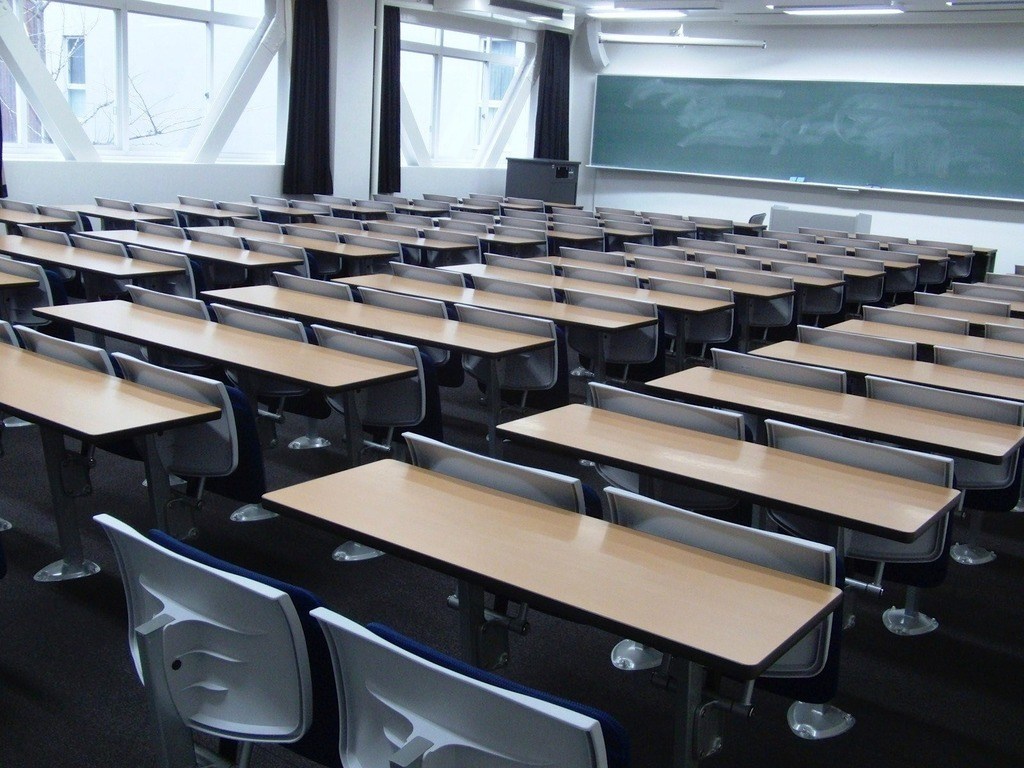The teacher shortage in Brussels is affecting schools across language borders, according to Brussels’ Minister for Multilingualism and Dutch Education Sven Gatz, and there is no quick fix to the problem.
“The shortage is more serious for Flemish schools but it’s also affecting French ones – it’s an urban problem,” Gatz told The Brussels Times. “For the last ten years we’ve done outreach to get new teachers to Brussels, but now we're running dry.”
Around 92 percent of the teachers in Brussels schools commute to work from outside of the city, Gatz says, pointing out that while other major cities face the same challenge, the proportion for Brussels is “problematic.”
The figures for Flemish-speaking schools in the Belgian capital (which account for around 20 percent of the total) are particularly concerning: six out of the seven still have vacancies, the Flemish Community Commission (VGC) has found.
There are approximately 7,500 staff at Flemish-speaking schools in Brussels, of which 6,000 to 6,500 are traditional classroom teachers. Today, 285 positions are still open.
“It may not seem like much, but of course this isn’t divided equally between the schools,” Gatz explained. “Sometimes the lack of teachers equates to as much as a quarter of staff missing.”
He said that 20 to 30 percent of schools are operating largely without issue, but for two-thirds of schools, the teacher shortage is causing significant issues. For half of those, “it’s a problem, for the other half - it’s a big problem.”
No quick fix
“We can't replace these people overnight,” said Gatz, who points out that long-term solutions like campaigns aimed at increasing the attractiveness of the teaching profession are important but can take years to bear fruit.
Some short-term solutions on the table include bringing retired, willing teachers back into the classroom part-time, increasing the length and rigour of student-teaching internships, and continuing to attract career-changers: a measure that has seen particular success in Brussels.
But not everyone is on board with each measure, and in the meantime, schools struggle to manage difficult student-teacher ratios.
Related News
- 'Lowest number' of Walloon pupils studying Dutch at school
- Multilingualism in Brussels 'key to success of children'
“Everyone wonders what we are doing,” Bart Tuyteleers, coordinating director of Klaveren 7 in Brussels, told De Standaard.
“It’s a matter of negotiation. Every teacher there is standing in front of a class – with or without extra children from other classes. Care and support are disappearing. We can no longer offer the quality of education that we want and that the pupils need.”
He says that education professionals have never faced anything like this before: teachers have found themselves in a difficult position, unable to take the leave they want or need for fear of having no one in the classroom; people without the appropriate qualifications are filling classroom roles; and a principal can’t leave their position because the students would be “left to their own devices.”
Systematic change needed
Heads of school worry that the poor working conditions will lead to teachers resigning, worsening a shortage for which there are no quick fixes.
“Stop thinking that a bicycle allowance or a laptop will solve the problem,” Tuyteleers said. “We have to rethink the system, because the 'traditional' teachers are no longer there.”
Some of the ways schools have been coping with the shortage so far include having principals act as teachers, and expanding class sizes to accommodate as many as 43 children under one teacher.
“Ten years ago there was a problem, now there is a crisis,” Ria De Sadeleer of Odisee University College told De Standaard, speaking as someone who helps train teachers in Brussels.
“What can an inspector still do at a school with hardly any teachers? Stop screening and go and stand in front of the class,” she said.
De Sadeleer doesn’t necessarily support a solution to the teacher shortage that involves having final-year students teach in short-staffed schools as interns, as Gatz and others have proposed, saying it’s important to “prevent students from leaving” the profession before they even graduate.
“We advocate [pedological support staff] co-teaching with the school's teachers,” she said, “That is feasible and more desirable.”
Catholic schools are struggling as much as any other, too. Stijn Van Eynde, who supports the Brussels schools of Catholic Education Flanders, agrees with De Sadeleer that a solution could involve more educational professionals who aren’t traditional classroom teachers.
“We have to stop dreaming of teachers who won't be there anyway and continue with the profiles we have,” said Van Eynde. “We are too dependent on inflow from outside Brussels.”
Yet whilst the problem is growing in severity, Gatz doesn’t think the current shortage will lead to school closures but stresses the need to act swiftly: “In a crucial sector like education, we have to find the solutions to manage the problems.”

